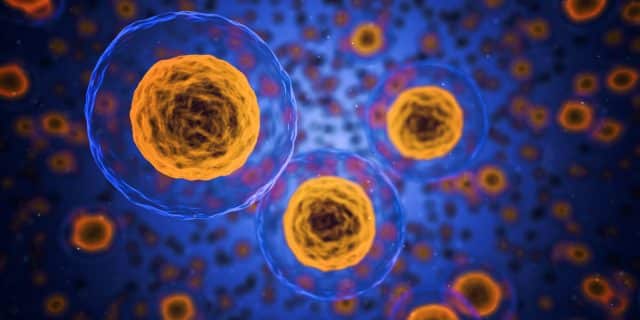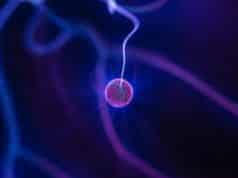Nature Medicine recently revealed that a woman with advanced, “incurable,” breast cancer is now cancer-free, two and a half years after she received a groundbreaking immunotherapy treatment.
According to the report, 52-year-old Judy Perkins was diagnosed with early stage breast cancer in 2003. Although she had a mastectomy, doctors discovered 10 years later that the cancer had spread. She was given 3 years to live. After multiple standard cancer therapies had failed, she enrolled in a 2015 clinical trial studying adoptive cell therapy.
 Steven Rosenberg led the study at the National Cancer Institute, and it also included patients with other cancers, as Rosenberg says adoptive cell therapy is not based on the type of cancer, but on the number and type of tumor mutations. The team studied each patient’s tumor to find mutations and then looked at the cancer’s immune cells to determine which ones would identify the tumor’s defects. After multiplying those particular cells in the laboratory, the team put them back into the patients to to fight off the tumors.
Steven Rosenberg led the study at the National Cancer Institute, and it also included patients with other cancers, as Rosenberg says adoptive cell therapy is not based on the type of cancer, but on the number and type of tumor mutations. The team studied each patient’s tumor to find mutations and then looked at the cancer’s immune cells to determine which ones would identify the tumor’s defects. After multiplying those particular cells in the laboratory, the team put them back into the patients to to fight off the tumors.
Rosenberg notes that the treatment is still very experimental, and many other patients in the trial did not respond to it. However, three cases, including Judy’s, have shown that the treatment holds great promise.
 One of Judy’s surgically-removed tumors contained 62 different mutations. The team took immune cells from the tumor (tumor-infiltrating lymphocytes – TILs), to find some of the cells that would target the mutations. After multiplying those cells into over 10 billion new ones, they introduced them back into Judy’s body. Prior to this treatment, she received chemotherapy. Five months after adoptive cell transfer, Judy’s scans came back clear, and the cancer hasn’t returned since.
One of Judy’s surgically-removed tumors contained 62 different mutations. The team took immune cells from the tumor (tumor-infiltrating lymphocytes – TILs), to find some of the cells that would target the mutations. After multiplying those cells into over 10 billion new ones, they introduced them back into Judy’s body. Prior to this treatment, she received chemotherapy. Five months after adoptive cell transfer, Judy’s scans came back clear, and the cancer hasn’t returned since.
Although Judy’s case is impressive and shows great promise for the future, one case isn’t enough to show definitively that the treatment could work in others. Rosenberg’s trial has given the drug to over 40 patients with sold tumors in the past four years. Most of these patients began the trial with little time left to live. Only about 15% of the patients have had results.
Those who showed response have all seen different results. Most have seem some kind of reduction. It’s not common to see cases like Judy’s that require no more treatment. But researchers are continuing to figure out how they can improve the efficacy of the treatment to produce more consistent positive outcomes.
 Although the treatment has a long way to go before scientists can attach substantial outcomes to it, it still offers us much to celebrate. Judy, along with two other late-stage cancer patients, have seen their cancers disappear. Immunotherapy is a great advance in medicine that has offered alternative ways to treat cancers that, quite simply, just don’t respond to traditional treatments. Patients with advanced melanoma, lung, and other cancers have also seen results after using immunotherapy, often in combination with chemotherapy.
Although the treatment has a long way to go before scientists can attach substantial outcomes to it, it still offers us much to celebrate. Judy, along with two other late-stage cancer patients, have seen their cancers disappear. Immunotherapy is a great advance in medicine that has offered alternative ways to treat cancers that, quite simply, just don’t respond to traditional treatments. Patients with advanced melanoma, lung, and other cancers have also seen results after using immunotherapy, often in combination with chemotherapy.
As scientists continue to study immunotherapy and give cancer patients the chance to try groundbreaking drugs, we will likely see more and more stories like Judy’s.



























I have been diagnosed with cancer insitu or 0 stage of cancer in the breast. What treatment would you recommend?